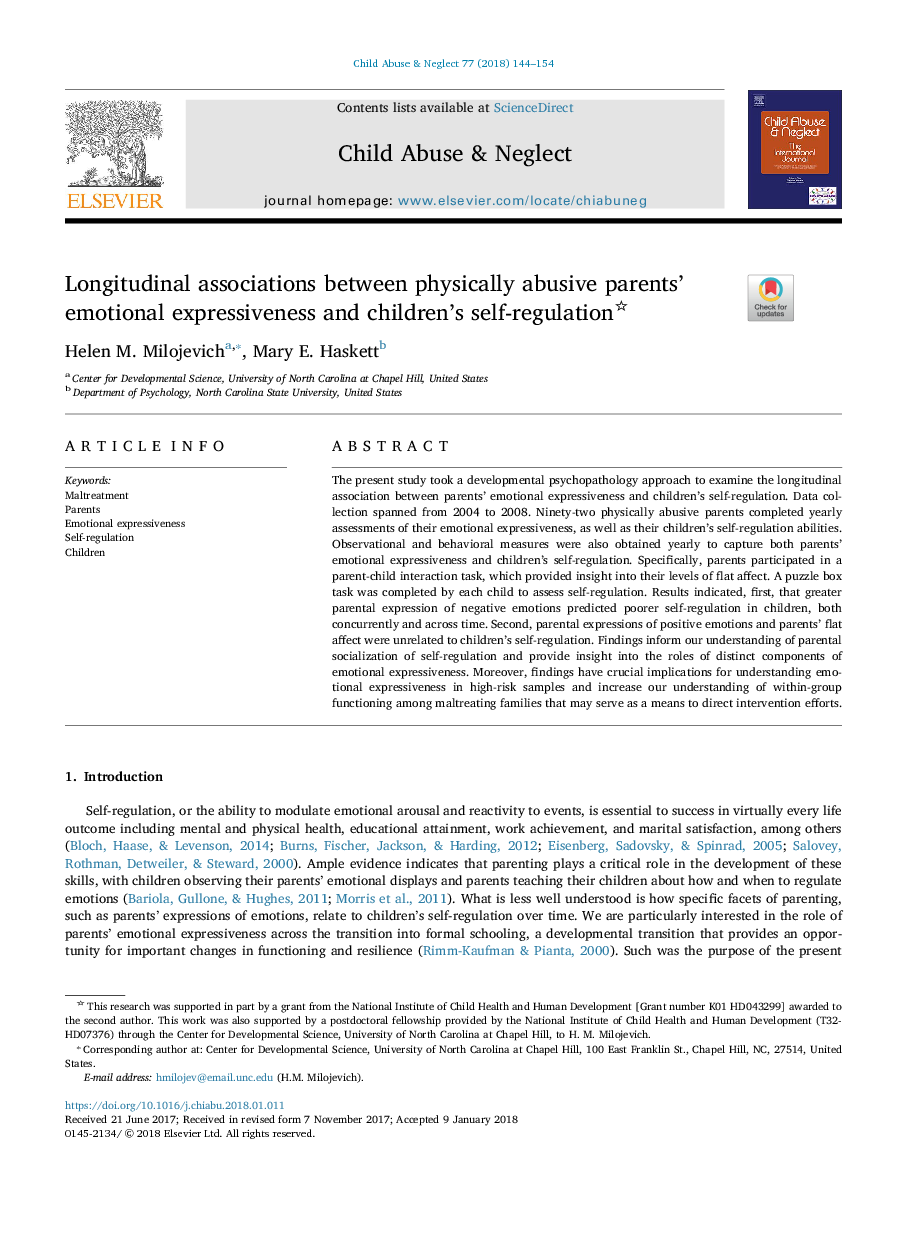ترجمه فارسی عنوان مقاله
ارتباط طولی بین بیان احساسات والدین از نظر جسمی و خودارزیابی کودکان
عنوان انگلیسی
Longitudinal associations between physically abusive parents emotional expressiveness and childrens self-regulation
| کد مقاله | سال انتشار | تعداد صفحات مقاله انگلیسی |
|---|---|---|
| 131219 | 2018 | 11 صفحه PDF |
منبع

Publisher : Elsevier - Science Direct (الزویر - ساینس دایرکت)
Journal : Child Abuse & Neglect, Volume 77, March 2018, Pages 144-154
ترجمه کلمات کلیدی
بدرفتاری والدین، بیان عاطفی، خود تنظیم فرزندان،
کلمات کلیدی انگلیسی
Maltreatment; Parents; Emotional expressiveness; Self-regulation; Children;

